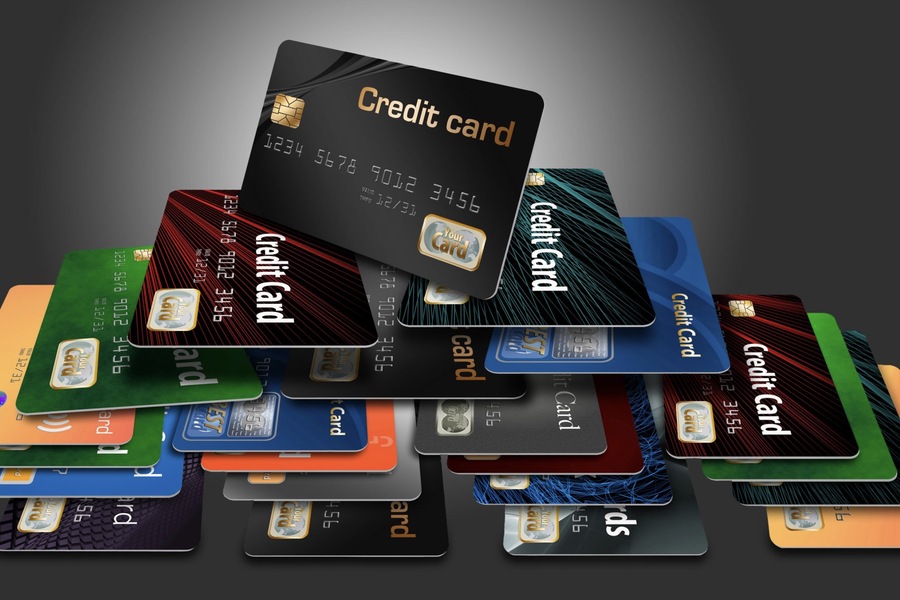
Dubai’s dynamic economy, marked by rapid growth and diversification, has a profound impact on the financial sector, particularly in the availability and variety of credit cards in the UAE. As a major financial hub in the Middle East, Dubai’s economic trends, regulatory frameworks, and consumer behavior play significant roles in shaping the credit card market. This article delves into the intricate ways in which Dubai’s economy influences credit card availability, offering a comprehensive analysis relevant to both consumers and financial institutions.
Economic Growth and Consumer Demand
Dubai’s robust economic growth has been a driving force behind the expansion of the credit card market in the UAE. As the economy grows, consumer confidence and spending power typically increase, leading to higher demand for financial products, including credit cards. Dubai’s position as a global business center attracts a large expatriate population, which also contributes to the rising demand for credit cards tailored to various income levels and spending habits.
The influx of foreign workers and the increasing disposable income of residents have encouraged banks and financial institutions to introduce a wide range of credit card offers in UAE. These offers cater to diverse consumer needs, from basic cards with minimal fees to premium cards with extensive benefits. The correlation between economic growth and credit card availability is evident, as a thriving economy creates a fertile ground for the proliferation of credit products.
Diversification and Financial Innovation
Dubai’s strategy of economic diversification, moving away from a reliance on oil to sectors such as tourism, real estate, and financial services, has played a pivotal role in the expansion of the credit card market. As new industries emerge and flourish, the financial needs of businesses and consumers evolve, prompting banks to innovate and offer more specialized credit card products.
For instance, the growth of the tourism sector has led to the introduction of travel-oriented credit cards that offer rewards such as air miles, hotel discounts, and airport lounge access. Similarly, the rise of e-commerce in Dubai has spurred the development of credit cards with enhanced security features and rewards for online purchases. The diversification of Dubai’s economy thus directly influences the variety and sophistication of credit card offerings available in the UAE.

Regulatory Environment and Consumer Protection
The regulatory framework in Dubai, overseen by the Central Bank of the UAE, plays a critical role in determining the availability of credit cards. Regulations are designed to ensure financial stability, protect consumers, and maintain the integrity of the banking system. As Dubai’s economy grows, so does the need for robust regulatory oversight to manage the risks associated with increased credit availability.
Regulatory measures, such as caps on interest rates, transparency requirements, and guidelines on responsible lending, shape the credit card market by influencing the terms and conditions that banks can offer. For example, regulations that promote consumer protection by capping fees or interest rates can make credit cards more accessible to a broader segment of the population. Conversely, stringent lending criteria aimed at reducing risk may limit the availability of credit cards to those with lower credit scores or unstable income.
The Impact of Tourism and Expatriate Population
Dubai’s status as a global tourist destination and a hub for expatriates significantly influences the availability of credit cards. The city’s thriving tourism industry generates demand for credit cards that cater to travelers, offering features such as no foreign transaction fees, travel insurance, and rewards points redeemable for flights and hotels. The large expatriate population, which comprises over 85% of Dubai’s residents, also drives the demand for credit cards that offer international benefits, such as global cashback programs and access to international airport lounges.
Moreover, the transient nature of the expatriate workforce in Dubai leads to the need for flexible credit card options. Banks respond by providing cards that accommodate the financial needs of expatriates, such as low-interest rates for balance transfers, rewards for remittances, and global acceptance. This focus on catering to the expatriate and tourist populations is a direct reflection of Dubai’s economic composition and its influence on the financial products available in the market.
Consumer Behavior and Spending Patterns
Consumer behavior in Dubai is influenced by the city’s high standard of living, cultural diversity, and economic prosperity. The spending patterns of residents, driven by lifestyle choices, directly affect the types of credit cards that are made available. In a city known for luxury shopping, fine dining, and premium services, there is a significant demand for credit cards that offer rewards and benefits in these categories.
Banks in Dubai tailor their credit card products to meet these consumer preferences by offering cards with perks such as exclusive access to high-end events, discounts at luxury retailers, and bonus points for dining at premium restaurants. The focus on lifestyle-oriented credit cards is a response to the spending habits of Dubai’s residents, who prioritize convenience, rewards, and status when choosing financial products.
Digital Transformation and Fintech Innovation
Dubai’s economy is at the forefront of digital transformation, with a strong emphasis on fintech innovation. This digital evolution has a profound impact on the availability and nature of credit cards in the UAE. As consumers increasingly adopt digital banking services, there is a growing demand for credit cards that integrate seamlessly with digital platforms, offering features such as mobile payments, contactless transactions, and real-time spending alerts.
Fintech companies in Dubai are also contributing to the diversification of credit card products by introducing innovative solutions such as virtual credit cards, which provide enhanced security for online transactions, and digital wallets that allow for easier management of multiple credit cards. The rise of fintech in Dubai is thus reshaping the credit card landscape, offering consumers more choice and flexibility than ever before.
Economic Cycles and Credit Card Availability
The availability of credit cards in the UAE is also influenced by economic cycles. During periods of economic expansion, banks are more likely to extend credit, resulting in a wider range of credit card products being offered. Conversely, during economic downturns or periods of financial uncertainty, banks may tighten their lending criteria, reducing the availability of credit cards to mitigate risk.
Dubai’s economy, while generally robust, is not immune to global economic fluctuations. Events such as the global financial crisis or fluctuations in oil prices can impact the local economy, leading to changes in credit card issuance policies. Understanding the cyclical nature of the economy helps consumers and financial institutions alike anticipate changes in credit card availability and adjust their strategies accordingly.

Competition Among Banks
The competitive landscape of the banking sector in Dubai plays a significant role in the variety of credit cards available. With numerous local and international banks operating in the city, competition drives innovation and the introduction of new credit card products. Banks vie for market share by offering attractive credit card offers in the UAE, such as low-interest rates, no annual fees, and enhanced rewards programs.
This competition benefits consumers by providing them with a wider selection of credit cards, each tailored to different needs and preferences. Additionally, the competitive environment encourages banks to continuously improve their offerings, introducing features that cater to the evolving demands of Dubai’s diverse population.
Financial Inclusion and Access to Credit
Dubai’s economic policies also emphasize financial inclusion, ensuring that a broad segment of the population has access to financial services, including credit cards. Efforts to promote financial inclusion have led to the introduction of credit cards designed for individuals with varying income levels, including low-income workers and those new to the credit system.
These inclusive financial products are essential in a city like Dubai, where the workforce is highly diverse. Credit cards that offer accessible terms, such as low or no minimum income requirements and simple application processes, are part of a broader strategy to include more people in the financial system, thereby supporting the overall economy.
Conclusion
The availability of credit cards in the UAE is significantly influenced by Dubai’s economy, which is distinguished by rapid growth, diversification, and innovation. The credit card market is influenced by a variety of economic factors, including the role of fintech innovation and regulatory frameworks, as well as the impact of economic growth and diversification. This provides consumers with a diverse selection of options to meet their requirements.
It is essential for both consumers and financial institutions to comprehend these factors as they navigate the changing credit card landscape. Whether you are interested in leveraging credit card offers in the UAE or gaining insight into the broader economic forces at play, acknowledging the correlation between Dubai’s economy and credit card availability can assist you in making well-informed decisions that are consistent with your financial objectives.

Cyclist, hustler, music blogger, Eames fan and critical graphic designer. Acting at the fulcrum of aesthetics and function to craft experiences both online and in real life. I prefer clear logic to decoration.
